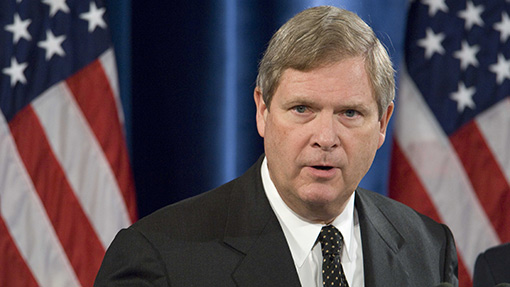USA using trade deal as leverage on GM crops

A planned trade deal between Europe and the United States should see barriers to US sales of many genetically modified crops removed, according to a senior US official.
US agriculture secretary Tom Vilsack said the Transatlantic Trade and Investment Partnership, which aims to create the world’s largest free-trade pact, should see markets open to GM crops that have been proven to be safe.
The rules should also apply to some chemically treated meats, he added.
The TTIP, which has been in talks for over a year, could boost US and EU economies by as much as $100bn (£59bn) a year, according to advocates.
However, agriculture emerged as one of the difficult areas for the two sides to agree on.
See also: Farming divisions threaten trade deal
The EU has said it will not allow imports of meat from hormone-treated animals or GM crops and would not alter its food safety laws under TTIP, which cover the two.
But the US says it is concerned by suggestions that GM crops posed a safety risk when there was no scientific evidence to back up those claims.
Instead the US and EU should work towards a common goal of freeing markets and removing barriers.
“Science is a common language,” Mr Vilsack said during a visit to Brussels earlier this month. “We will be working towards making sure that whatever agreements are reached, they are consistent with sound science.”
Mr Vilsack said it was important the processes regulating GM crops were regulated between the US and Europe.
It was unacceptable that it took more than four years for GM strains to gain access to markets after they were cleared by the European Food Safety Authority when it only took an average 18 months in the US, he said.
The EU also needed to rethink its current bans on chlorine-washed chicken and beef from cattle raised with growth hormones as the treatment was a safe way of reducing pathogens, Mr Vilsack added.
“We are still going to have to have some conversation about the beef question.”
A deal agreed with the EU to allow an import quota of hormone-free US beef to settle a dispute at the World Trade Organisation was not a permanent solution, he said.
The European Commission said it could offer the US a greater export quote of hormone-free beef, as it had already agreed between the EU and Canada, but it was not willing to lift its ban on hormone-treated cattle.
